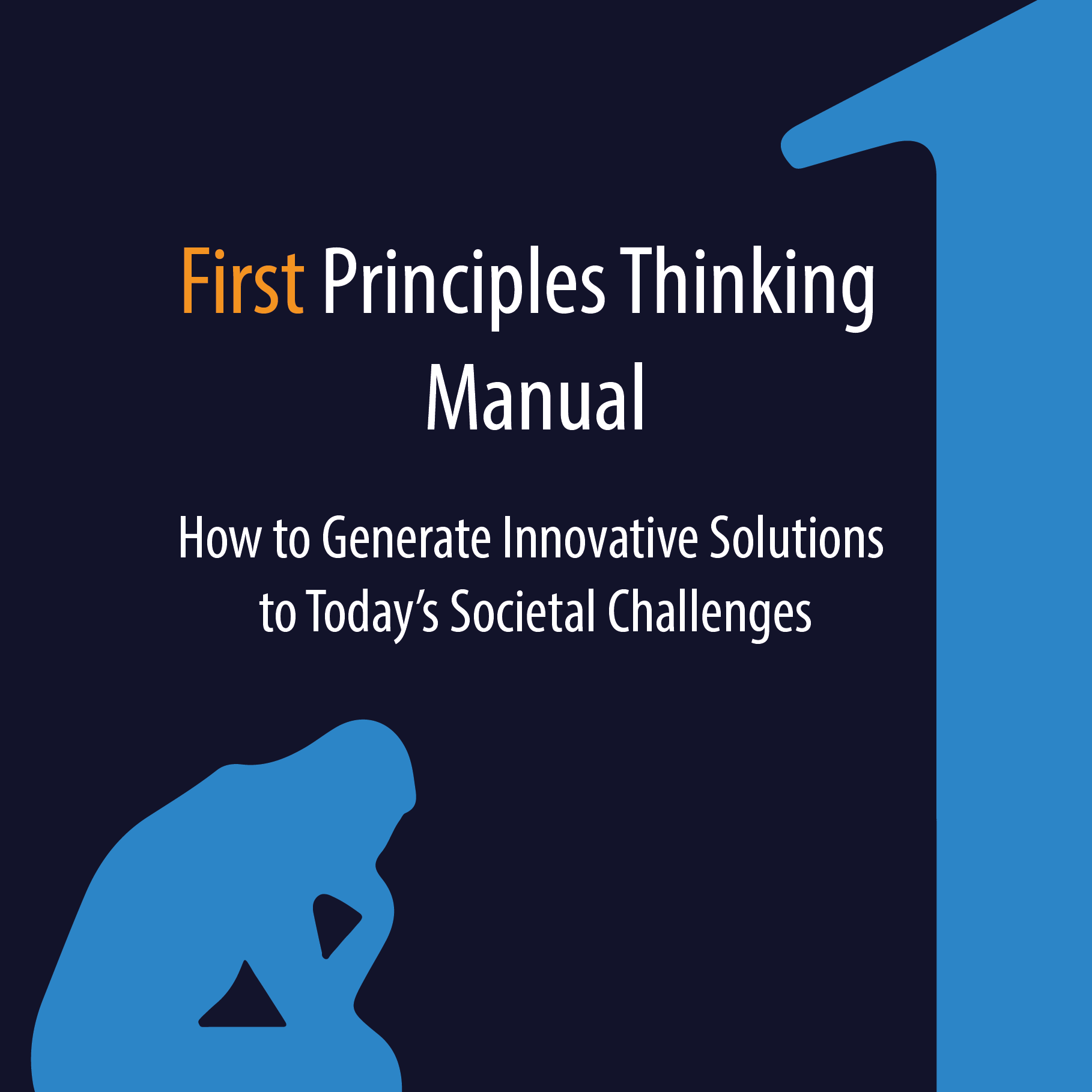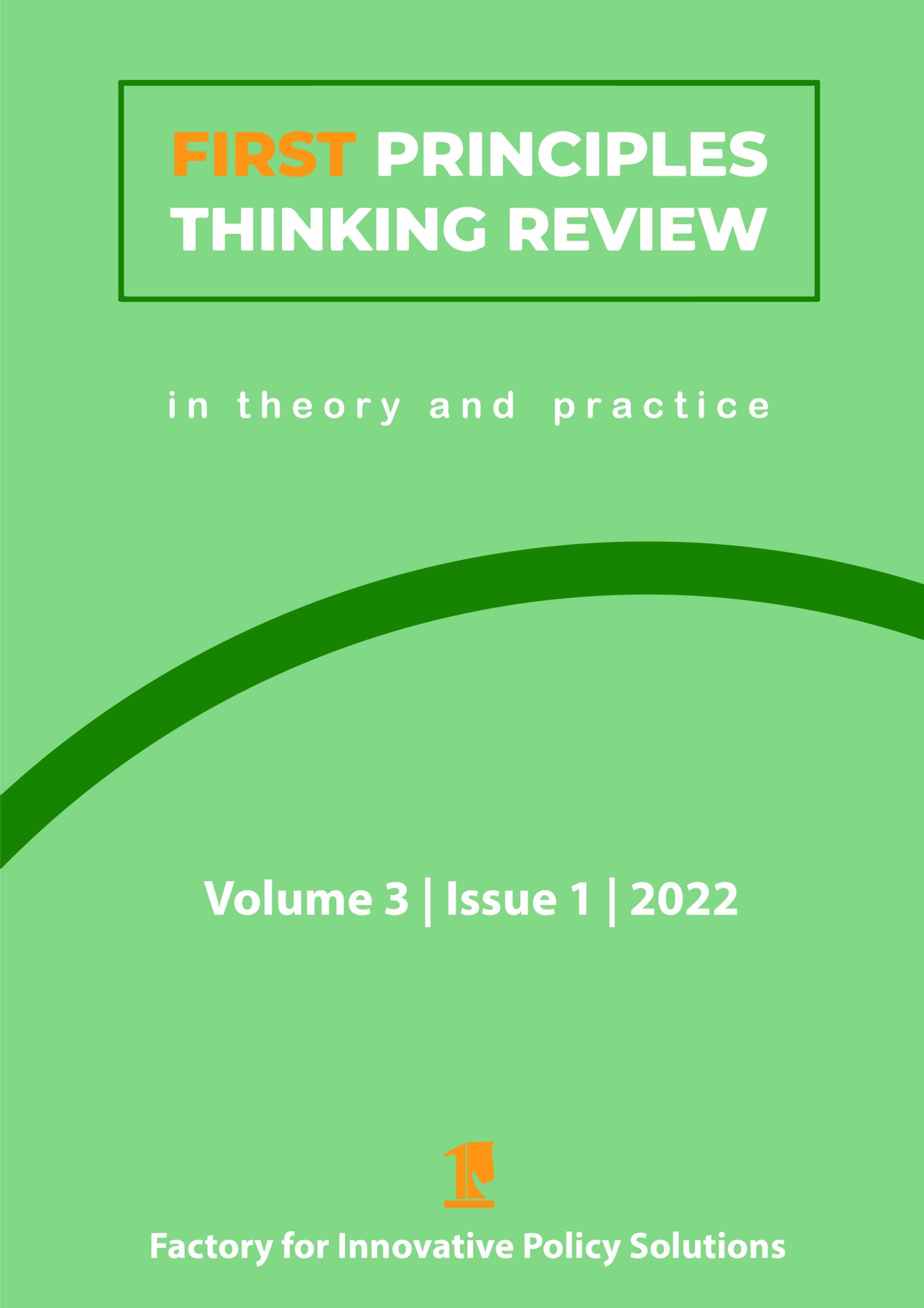Using First Principles Thinking to Evaluate Business Opportunities

Photo by Brooke Lark
The goal of this article is to demonstrate how First Principles Thinking can be a helpful tool in personal concerns. This article will use this problem-solving method to evaluate multi-level marketing business plans. The author uses an example from her own life as a template for how to apply First Principles Thinking as a critical analysis tool. This article also seeks to illustrate that individuals can customize First Principles Thinking for their own behavioral thinking. Concluding remarks will provide a methodically sound solution to the prospect of joining a multi-level marketing arrangement.
Keywords: multilevel marketing, business opportunity, work from home, direct sales
Money making opportunity or money taking certainty?
If it hasn’t happened to you yet, it will. It’s one of life’s inevitabilities. Someone you know or perhaps even a perfect stranger will approach you with a business opportunity. These come in all shapes and sizes. You could be selling health supplements, trading in (crypto)currency, or providing financial services. For me, it was the latter.
I was sixteen and working part-time in a bridal shop. It was a fun job and my boss was really nice, so my enthusiasm for my job showed when I assisted customers. One customer, the father of a bride-to-be, said he liked my attitude and wanted to hire me for his business. We set a place and time to meet and he gave me his card. I didn’t smell anything fishy—he was wearing a suit and had business cards, after all. A real business guy doing real business things, I thought.
Similar situations are repeated countless times each day. Maybe a friend of your sister-in-law approached you about getting in on her great business selling leggings. Or someone you went to school with told you about how you too can make thousands a week (!) trading Bitcoin. Perhaps someone DMed you on Instagram, complimenting you on your style, and they want to collaborate with you for their make-up venture. In any event, there is almost always big money involved and freedom from the 9 to 5 grind.
The business model for these amazing opportunities invariably follows a similar outline—you purchase either goods or training from the person who presents this idea to you. You then need to either sell these goods or services to friends, family, or just whoever. You are also encouraged to share this amazing business opportunity with your friends and family so that they too can sell these products/services. The person from whom you bought them has another level above them in the purchasing chain, and above that another level, and so on until the top of this pyramid is reached. This business model is sometimes called direct-sales but is also known as multi-level marketing.
The promise to make serious cash can be seductive, especially now when so many of us are coping with reduced income and/or opportunity due to the pandemic. Furthermore, their claims seem legitimate at first look. They can show you graphs and charts (like the super legitimate businessman did to me) and they can testify to their own personal prosperity with this program. If the person telling you this is a close friend or family member, it can be even more alluring. After all, why would someone who knows you and cares about you lie to you? But…
Using First Principles Thinking as an analytical tool
But if all this was true there’d be a million more millionaires running around. By the process of deduction, we can tell that many of these claims are bogus. Let’s use First Principles Thinking (FPT) as a tool to evaluate these amazing business opportunities. We can use FPT to keep an open mind, systematically question our assumptions and use that to identify the core issue, and then come up with a new idea or an approach to the situation.
This article will present a step-by-step breakdown of the claim that you too can make big bucks with multi-level marketing. Instead of using FPT as a problem-solving process, we will use it as a critical analytical process. In doing so the questions asked/presented in each step may be somewhat different than how it is used in a problem-solving context. So, let’s get to it and take a closer look at the riches promised by multi-level marketing business opportunities.
What do I want to get out of this opportunity?
Although freedom from the grind and being your own boss are often showcased as benefits of these opportunities, financial gain is always at the heart. So, for our purposes, let’s identify “making a reasonable income from the business opportunity offered” as our objective. Reasonable income can vary from person to person and place to place, but for the sake of this article let’s say it would be what you would make if you put your time into an easily-attainable job with comparable hours. Something like serving at a restaurant or working at a drugstore. This could range from several hundred to several thousand a month, depending on your location and experience.
What questions do I need to ask?
Answering the following questions can help you to identify obstacles to reach your objective:
- Take into account that you must almost always buy the stock/purchase training from the person offering you the opportunity. This is a cost and must be considered when calculating how much actual income you can receive. How much money do I need to invest in this? Why am I required to buy stock directly from this company as opposed to making my own choice for vendors? How much money will I make after my own costs?
- Do you have the skills to make money from this? Are you a natural salesperson? Do you really understand how financial planning works?
- How many clients/customers can you get? Do you really know enough people to sell thousands of dollars worth of product/services to? Do these people have the money to buy these products?
What are the underlying assumptions and first principles?
In my situation the assumption was “I am good at my job here at the bridal shop, so why shouldn’t I be good at this job?” That, I believe, is the assumption behind these business opportunities—the concept that you are competent and therefore you can make money with anything you try.
However, using FPT, we can do a little mini-rundown for this assumption. Why would I, a teenage girl who worked in a bridal shop, actually be in any way good at selling financial services? I have zero interest or experience in financial matters. Fundamental truth in this situation: I would probably not be good at this because, as mentioned, I have zero interest or skill set. Why does this seemingly professional business man want a teenage girl with zero experience?
As we can see FPT can be a branching system as well, especially when used as an analysis and not as a direct-problem solving tool. Now that we have, using my own experience as an example, uncovered a (just one though, there are potentially many, but we’d be here all day unraveling them all) first principle: I would not be good at this at all.
Asking more critical questions
Our first principle being that I would not be good at this leads into a crucial followup question: Why does this person want to share this amazing business opportunity with me? When considering this from a traditional commerce perspective, especially when the business is selling a product, it makes little sense. In the situation that it is a product, why doesn’t the company sell their product through either a retail outlet or their own website? Why are they using you as a middle man to sell this? Wouldn't they want to keep as much of the potential market for themselves? Why would they willingly divvy up their potential client pool?
Another way to perform this step is to compare it to real world examples. Look at successful businesses or entrepreneurs you know. Do they engage in this business model? Have you ever met anyone who became demonstrably wealthy from a model like this?
In my case, however, the question should be “why is the business professional recruiting a young woman who helps women try on big fluffy dresses to sell insurance?” Doubtlessly financial service firms do need to hire people to manage their clients and find new ones. But shouldn’t a legitimate business be recruiting qualified candidates? Why are qualified candidates eschewed in favor of seemingly naive teenagers?
What conclusions do we arrive at?
Let’s have a look at the two major points from the above sections:
- Why are businesses using this model to sell their products?
- Why are they recruiting people without experience or credentials to perform this service?
Firstly, if this was a good product at a good price, would they need a complicated multi-level distribution method to sell it? If this is a good product, why can’t it compete with comparable products in an open marketplace? Here we see a failure of the business model product idea—it does not pass the test of being an actual money-making opportunity because if it was a product with the potential to make money, the manufacturer/owner of the product would be selling it for themselves and keeping all the profit made as opposed to diffusing it through multiple levels. Instead of the product itself, you are likely to be the money-making opportunity.
Secondly, why are they recruiting people without experience or credentials to perform this service? Here it is because people with experience or credentials can discern that this is not a money-making opportunity nor a legitimate business model. I had no financial experience so during the meeting I just took for granted that what the business man was saying was true. But when he told me I’d need to pay a couple of hundred dollars for a training course and I’d be an independent contractor and not an actual employee, that’s when my natural suspicion clocked in.
Unlike many young people who would be successfully targeted by this not-a-real-business-man, I did have some business and employment experience. Both of my parents ran their own businesses so I was familiar with the basics of running a company, and I already had a few jobs prior to that. Perhaps he was hoping to catch a young person with zero experience, because people with experience will know this is not a legitimate business model. Employers pay you, you don’t pay employers.
Although more of a conclusion than a solution as we are using FPT as an analysis tool, using the above process we can reasonably be certain that the business opportunity presented to you, if it follows the multi-level marketing scheme, is not a good opportunity unless you have the skills and experience, but if you have the skills and experience you would still be better served by a different business model due to the restrictions on purchasing your stock.
Conclusion
We can use FPT to not only come up with solutions for large-scale problems and community concerns, but also to evaluate new situations on a personal level. FPT can be employed as an analytic process when presented with employment situations that you may be unfamiliar with. At the heart of this analytical process is continuing to ask critical questions to uncover the underlying assumptions and fundamental truths (first principles).
You may also have noticed that I interpret the process somewhat differently than my colleagues here at FIPS may do. FPT isn’t a ridgid rubric that you will be graded on. It is a tool to help you discern the logic within a situation, and like many tools the exact way that you apply it is up to personal preference and predisposition. So don’t be afraid to use FPT in a way that feels comfortable to you.
Finally, I do not mean to suggest that all business opportunities are bad ideas or predatory schemes. A friend or acquaintance may very well have an excellent, well-thought out business plan that they would like you to invest in. However, these business plans will generally not involve uplines and downlines, direct sales, contacting people out of the blue on social media, or trying to trick teenagers into thinking they should pay five hundred dollars to get a nonsense course in insurance sales.
Apply first principles thinking yourself?
Would you like to apply first principles thinking yourself and have your problem-solving experience published in the First Principles Thinking Review? Then be sure to check out the submission guidelines and send us your rough idea or topic proposal. Our editorial team would be happy to work with you to turn that idea into an article.
Share this page
Disclaimer : The views, thoughts and opinions expressed in submissions published by FIPS reflect those of the authors and do not necessarily reflect the views held by FIPS, the FIPS team or the authors' employer.
Copyrights : You are more than welcome to share this article. If you want to use this material, for example when writing an article of your own, keep in mind that we use cc license BY-NC-SA. Learn more about the cc license here .
What's new?










@newslettermailinglist
Thanks for subscribing!
Something went wrong and we couldn't process your submission. Please try again or notify us at info@innovativepolicysolutions.org.

